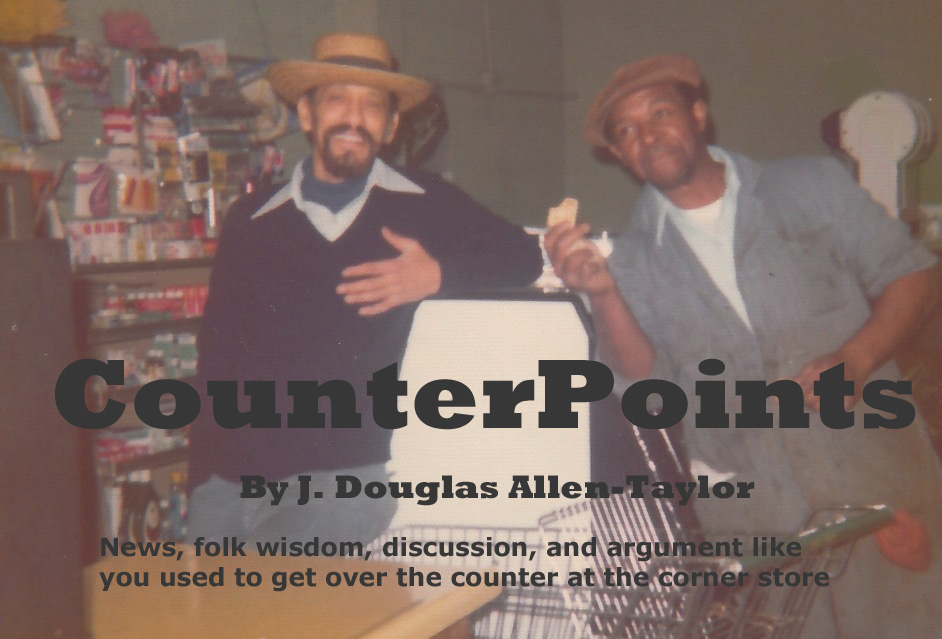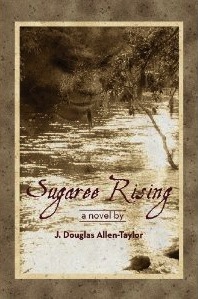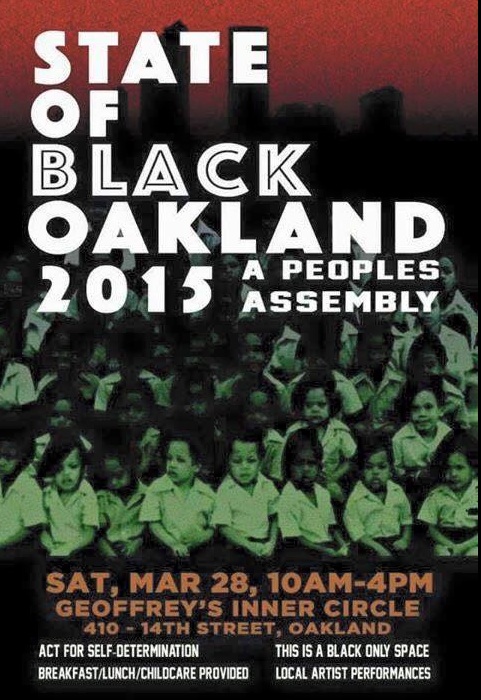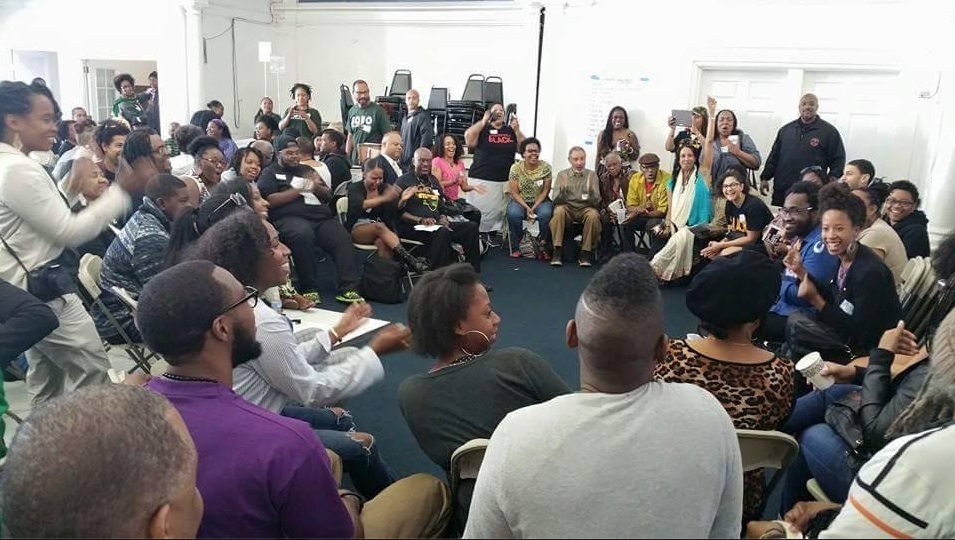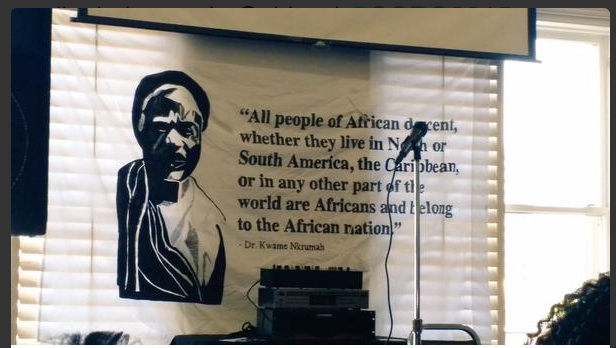|
|
An Interrupted Dialogue Resumes March 31, 2015 I stopped by the State Of Black Oakland 2015 Peoples Assembly last weekend at Geoffrey’s Inner Circle, and in many ways it was like stepping back in time. For me, at least, it was a return to the types of conferences, assemblies, and gatherings of Black Folks that used to be so common late in the 1960’s and into the 1970’s until they more or less died out in the Reagan years. Several hundred participants at last weekend’s event broke out into discussion groups throughout the day on such broad-based topics as economics, politics, education, and health. The assembly was co-sponsored by a number of organizations that have been deeply involved in African-American advocacy, affairs, and activism in the Bay Area in recent years, including—but not limited to—the Malcolm X Grassroots Movement, the Black Organizing Project, the ONYX Organizing Committee, and the All African People’s Revolutionary Party. No great conclusions appeared to be reached, but these are the first steps in a journey whose ultimate destination has not been fully determined as yet. But they’re working on it.
These kinds of African-Americans were quite common during the Black Power era, when “It’s Nation Time!” was a popular call, and there was a spirited debate among Black Folk—a debate that went back to the days when we were first captured and kidnapped and brought to these shores—as to whether that should mean breaking off into a separate nation of our own, returning to the Mother African continent, or developing a “nation-within-a-nation” amidst the geographical and political boundaries of the United States. One recalls from that time—among many, many others—the 1967 Conference on Black Power and Art at San Francisco’s Bayview/Hunter’s Point Community Center at which Betty Shabazz spoke two years after the assassination of her husband, the national Black Power Conference held in Newark, New Jersey, shortly after the 1967 Newark rebellion/riots, Malcolm X, and the 1972 National Black Political Convention in Gary, Indiana. The government activities that disrupted that movement, and those Black discussions and decision-making gatherings, is well-documented, and far too extensive to properly account here. A promising movement of Black self-determination was still-born, strangled in its crib. But decades later—with many of the 60’s and 70’s leaders still in exile or in jail, or the victims of assassinations, and with Black neighborhoods still reeling from the introduction of crack-fueled violence, and gentrification scattering many of the remains to Pittsburg and Antioch and the Delta beyond—we are beginning to see the children and grandchildren of the Black Power activists taking up the call and the cause again and resuming the interrupted conversation. Personally, I don’t think Blacks talking among ourselves—without outside interference or disruption—about things important and necessary to Blacks is a subject of challenge or debate. The disintegration of the African-American community in something under a single lifetime—from the early 1960’s through today—is justification enough for Black Folk to renew a dialogue amongst ourselves, if such justification is even needed. Those from outside African-America who are really our friends will understand, and those who do not understand—well, perhaps they need to work harder at it. Either way, these internal Black discussions will continue. And for anyone who thinks the goal ought to be a healed and strengthened African-American community that takes care of its own business, that’s a good thing.
|
